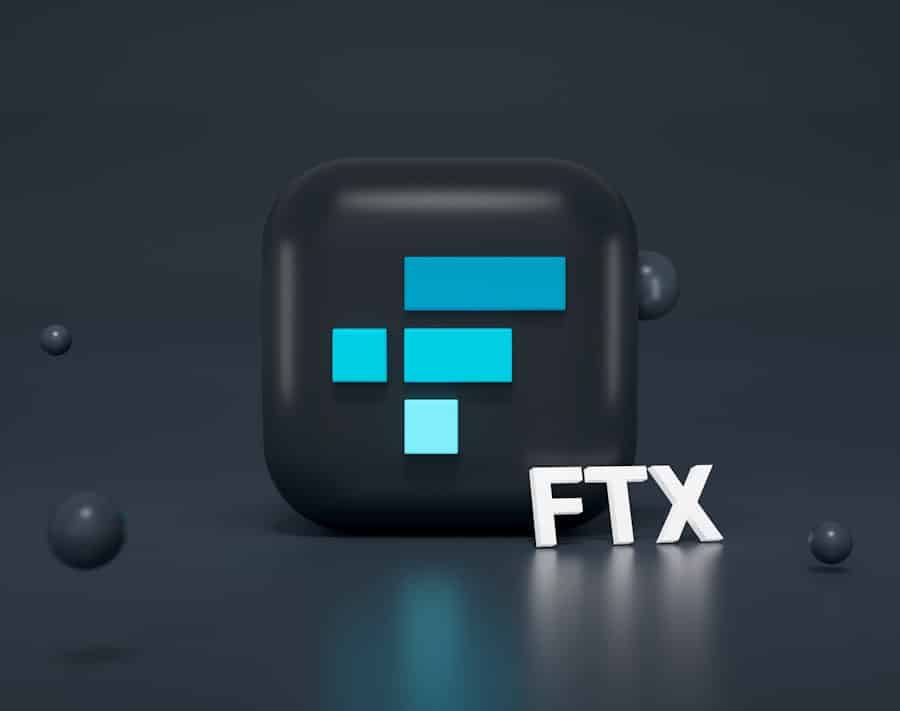Decentralized Finance, commonly referred to as DeFi, represents a paradigm shift in the financial services landscape, leveraging blockchain technology to create an open and permissionless financial ecosystem. Unlike traditional finance, which relies on centralized institutions such as banks and brokers, DeFi operates on smart contracts and decentralized applications (dApps) that facilitate peer-to-peer transactions without intermediaries. This innovative approach has the potential to democratize access to financial services, reduce costs, and enhance transparency.
As DeFi continues to gain traction, its impact on traditional banking institutions is becoming increasingly pronounced, prompting banks to reassess their roles in the financial ecosystem. The rise of DeFi has introduced a new competitive dynamic for banks, challenging their long-standing business models. With the ability to offer services such as lending, borrowing, trading, and yield farming directly on blockchain platforms, DeFi projects are attracting a growing user base that seeks alternatives to conventional banking.
This shift is not merely a trend; it signifies a fundamental change in how individuals and businesses interact with financial services. As customers become more aware of the benefits of DeFi—such as lower fees, faster transactions, and greater control over their assets—banks must adapt to this evolving landscape or risk losing relevance in the financial sector.
Key Takeaways
- DeFi is disrupting traditional banking by offering decentralized financial services and products.
- Banks face regulatory challenges in navigating the uncharted territory of DeFi, including compliance with existing financial regulations.
- Banks also encounter technology and infrastructure challenges in integrating with DeFi platforms and ensuring interoperability.
- Despite challenges, there are opportunities for banks to leverage DeFi for cost savings, efficiency, and new revenue streams.
- Banks must navigate competition with DeFi platforms while also exploring collaboration opportunities to stay relevant in the evolving financial landscape.
Regulatory Challenges for Banks in DeFi
The regulatory environment surrounding DeFi is complex and often ambiguous, presenting significant challenges for traditional banks. One of the primary concerns is the lack of a clear regulatory framework governing decentralized platforms. Unlike traditional financial institutions that operate under strict regulatory oversight, DeFi platforms often exist in a legal gray area, making it difficult for banks to navigate compliance requirements.
This uncertainty can deter banks from engaging with DeFi projects or integrating them into their service offerings, as they may fear potential legal repercussions or reputational damage. Moreover, the decentralized nature of DeFi complicates the enforcement of regulations. Traditional banks are accustomed to dealing with centralized entities that can be held accountable for compliance failures.
In contrast, DeFi platforms often operate without a central authority, making it challenging for regulators to impose rules or monitor activities effectively. This situation creates a dilemma for banks: while they may recognize the potential benefits of collaborating with DeFi platforms, they must also grapple with the risks associated with regulatory non-compliance. As regulators around the world begin to take a closer look at DeFi, banks will need to stay informed and agile in adapting their strategies to align with evolving regulatory expectations.
Technology and Infrastructure Challenges for Banks in DeFi

The integration of DeFi into traditional banking systems presents significant technological and infrastructure challenges. Banks have historically relied on legacy systems that are often rigid and not designed to accommodate the rapid pace of innovation seen in the DeFi space. These outdated systems can hinder banks’ ability to offer competitive products and services that align with the expectations of tech-savvy consumers who are increasingly drawn to decentralized solutions.
Additionally, the interoperability between traditional banking systems and blockchain technology poses another hurdle. Many DeFi platforms operate on different blockchain networks, each with its own protocols and standards. For banks to effectively engage with these platforms, they must invest in developing or acquiring technology that enables seamless integration and communication between disparate systems.
This may involve significant capital expenditure and a rethinking of existing IT strategies. Furthermore, banks must also consider the scalability of their infrastructure to handle increased transaction volumes as they explore partnerships with DeFi platforms.
Opportunities for Banks in DeFi
Despite the challenges posed by DeFi, there are numerous opportunities for banks willing to embrace this new financial paradigm. One of the most significant advantages is the potential for enhanced customer engagement through innovative financial products. By leveraging DeFi technologies, banks can offer services such as automated lending and borrowing solutions that provide customers with greater flexibility and control over their finances.
For instance, banks could develop their own decentralized lending platforms that allow customers to earn interest on their deposits while simultaneously providing loans to other users. Moreover, DeFi presents an opportunity for banks to tap into new revenue streams by participating in liquidity pools or yield farming initiatives. By providing liquidity to decentralized exchanges or lending protocols, banks can earn fees and interest that contribute to their bottom line.
This diversification of revenue sources can help banks mitigate risks associated with traditional banking operations while positioning themselves as forward-thinking institutions that are willing to adapt to changing market dynamics.
Competition and Collaboration with DeFi Platforms
The relationship between traditional banks and DeFi platforms is characterized by both competition and collaboration. On one hand, banks face increasing competition from decentralized platforms that offer similar services without the overhead costs associated with traditional banking operations. This competition is particularly pronounced in areas such as payments, lending, and asset management, where DeFi solutions can provide faster and cheaper alternatives.
On the other hand, there is significant potential for collaboration between banks and DeFi platforms. By partnering with established DeFi projects, banks can leverage their expertise in risk management and compliance while gaining access to innovative technologies that enhance their service offerings. For example, a bank could collaborate with a decentralized lending platform to provide customers with access to crypto-backed loans while ensuring compliance with regulatory requirements.
Such partnerships can create synergies that benefit both parties and ultimately lead to improved customer experiences.
Risk Management and Security Concerns in DeFi

As banks explore opportunities within the DeFi space, they must also address the inherent risks associated with decentralized finance. One of the primary concerns is security; DeFi platforms have been targets for hacks and exploits due to vulnerabilities in smart contracts or inadequate security measures. For instance, high-profile incidents such as the hack of the Poly Network in 2021, which resulted in losses exceeding $600 million, highlight the potential risks involved in engaging with DeFi projects.
Banks must implement robust risk management frameworks that account for these unique challenges when considering partnerships or investments in DeFi. This includes conducting thorough due diligence on potential partners, assessing the security protocols of DeFi platforms, and ensuring that appropriate safeguards are in place to protect customer assets. Additionally, banks should consider developing their own security measures tailored specifically for DeFi interactions, such as insurance products that cover losses incurred from smart contract failures or hacks.
Customer Experience and Engagement in DeFi
Customer experience is paramount in both traditional banking and the emerging DeFi landscape. As consumers become more familiar with decentralized finance, their expectations regarding user experience will evolve accordingly. Banks must prioritize enhancing customer engagement by offering intuitive interfaces and seamless interactions that mirror the simplicity found in popular DeFi applications.
To achieve this goal, banks can draw inspiration from successful DeFi projects that prioritize user experience through gamification elements or community-driven initiatives. For example, some decentralized exchanges have implemented user-friendly interfaces that allow even novice users to trade cryptocurrencies effortlessly. By adopting similar design principles and focusing on user-centric features, banks can attract customers who may otherwise gravitate toward decentralized alternatives.
Strategies for Banks to Navigate the DeFi Landscape
To successfully navigate the complexities of the DeFi landscape, banks must adopt proactive strategies that position them as leaders in this evolving space. One approach is to invest in research and development focused on blockchain technology and its applications within finance. By fostering a culture of innovation and encouraging collaboration between technology teams and business units, banks can identify new opportunities for growth within the DeFi ecosystem.
Additionally, banks should consider forming strategic alliances with fintech companies specializing in blockchain solutions or DeFi applications. These partnerships can provide access to cutting-edge technologies while enabling banks to leverage their existing customer bases and regulatory expertise.
In conclusion, while the rise of decentralized finance presents challenges for traditional banking institutions, it also offers a wealth of opportunities for those willing to adapt and innovate. By embracing collaboration, investing in technology, prioritizing customer experience, and implementing robust risk management strategies, banks can position themselves favorably within this transformative financial landscape.
In the rapidly evolving financial landscape, decentralized finance (DeFi) presents both challenges and opportunities for traditional banks. As banks navigate this new terrain, they must adapt to the innovative technologies and decentralized systems that DeFi introduces. A related article that explores the intersection of technology and traditional sectors is the review of the best laptops for teachers in 2023. This article highlights how technology is reshaping education, much like how DeFi is transforming the financial industry. Both sectors are experiencing a shift towards more digital and decentralized solutions, emphasizing the need for adaptation and innovation.
FAQs
What is DeFi?
DeFi, or decentralized finance, refers to a category of financial services that are built on blockchain technology and operate without traditional intermediaries such as banks. These services include lending, borrowing, trading, and more.
Why is DeFi a challenge for banks?
DeFi poses a challenge for banks because it allows individuals to access financial services without the need for a traditional bank. This can potentially reduce the need for traditional banking services and impact their revenue streams.
How does DeFi present an opportunity for banks?
DeFi presents an opportunity for banks to explore new business models and partnerships. Banks can leverage blockchain technology and collaborate with DeFi platforms to offer innovative financial products and services to their customers.
What are the risks associated with DeFi for banks?
The risks associated with DeFi for banks include regulatory uncertainty, security vulnerabilities, and potential loss of market share. Banks also need to consider the potential impact on their existing business models and customer relationships.
How are banks responding to the rise of DeFi?
Banks are responding to the rise of DeFi by exploring partnerships with DeFi platforms, investing in blockchain technology, and developing their own decentralized financial products. Some banks are also engaging with regulators to address the regulatory challenges posed by DeFi.

